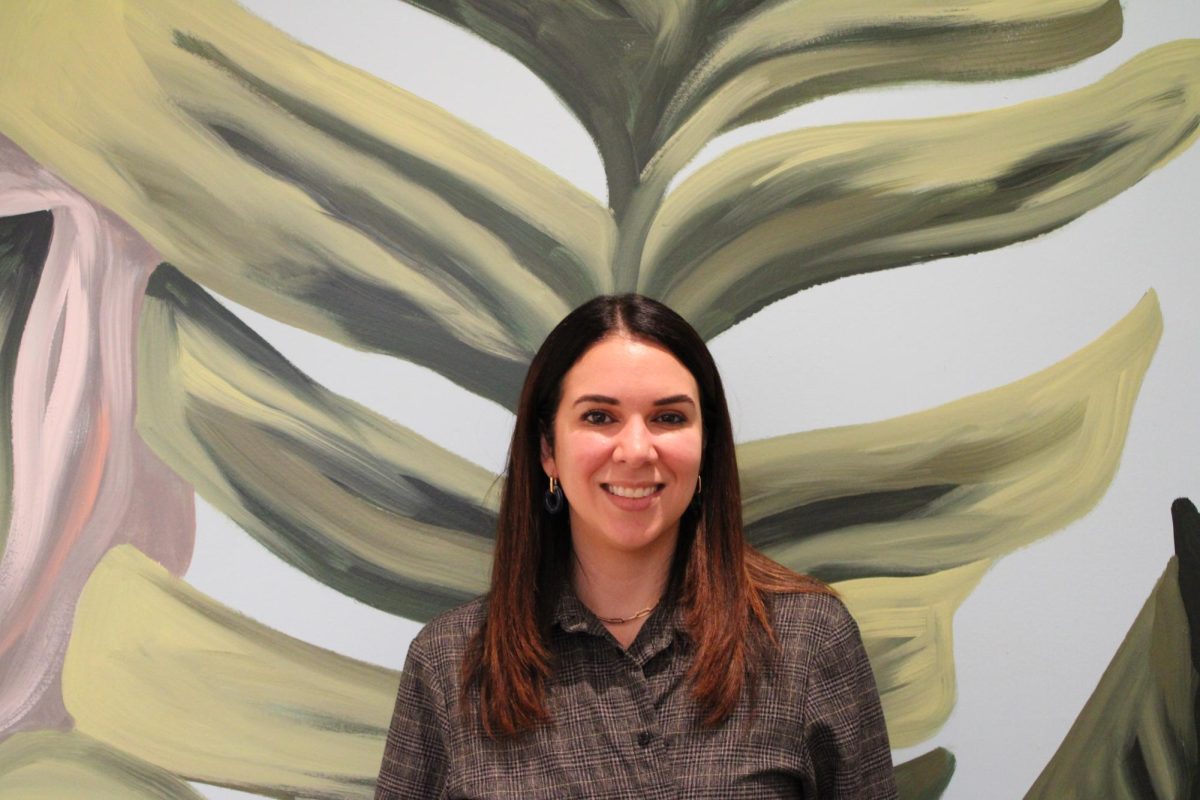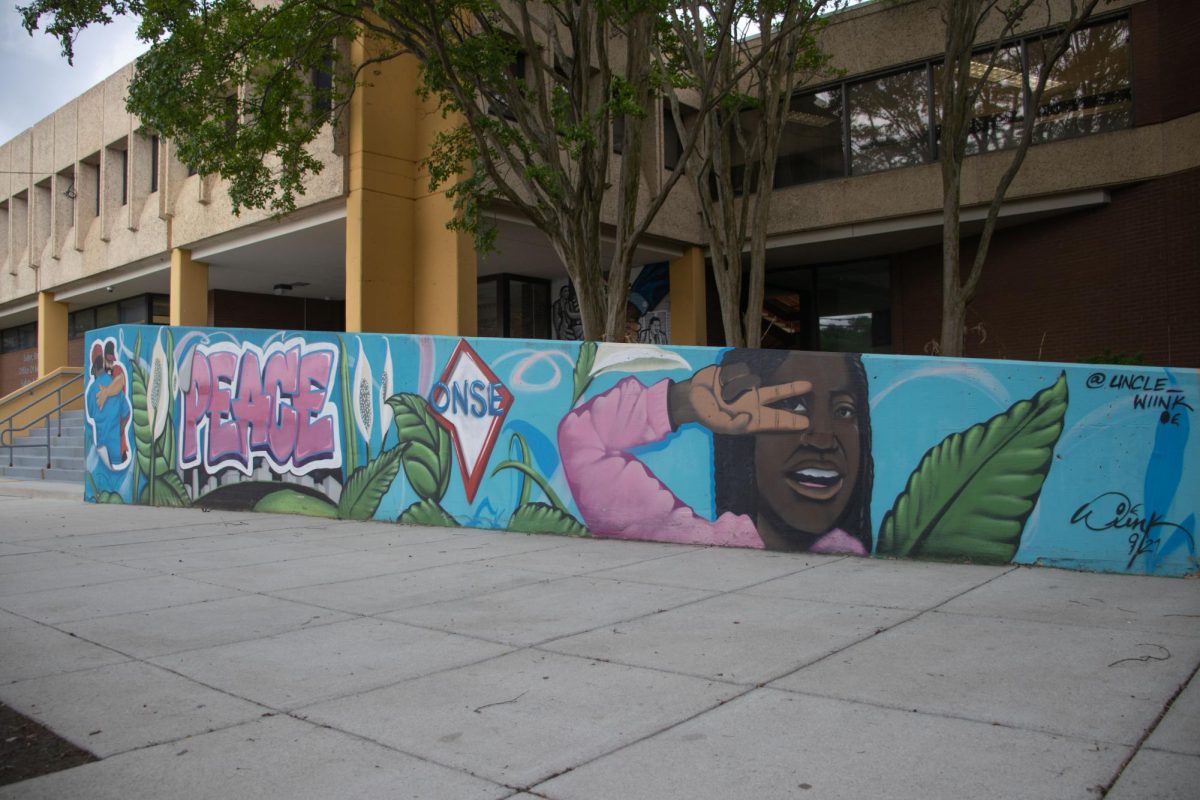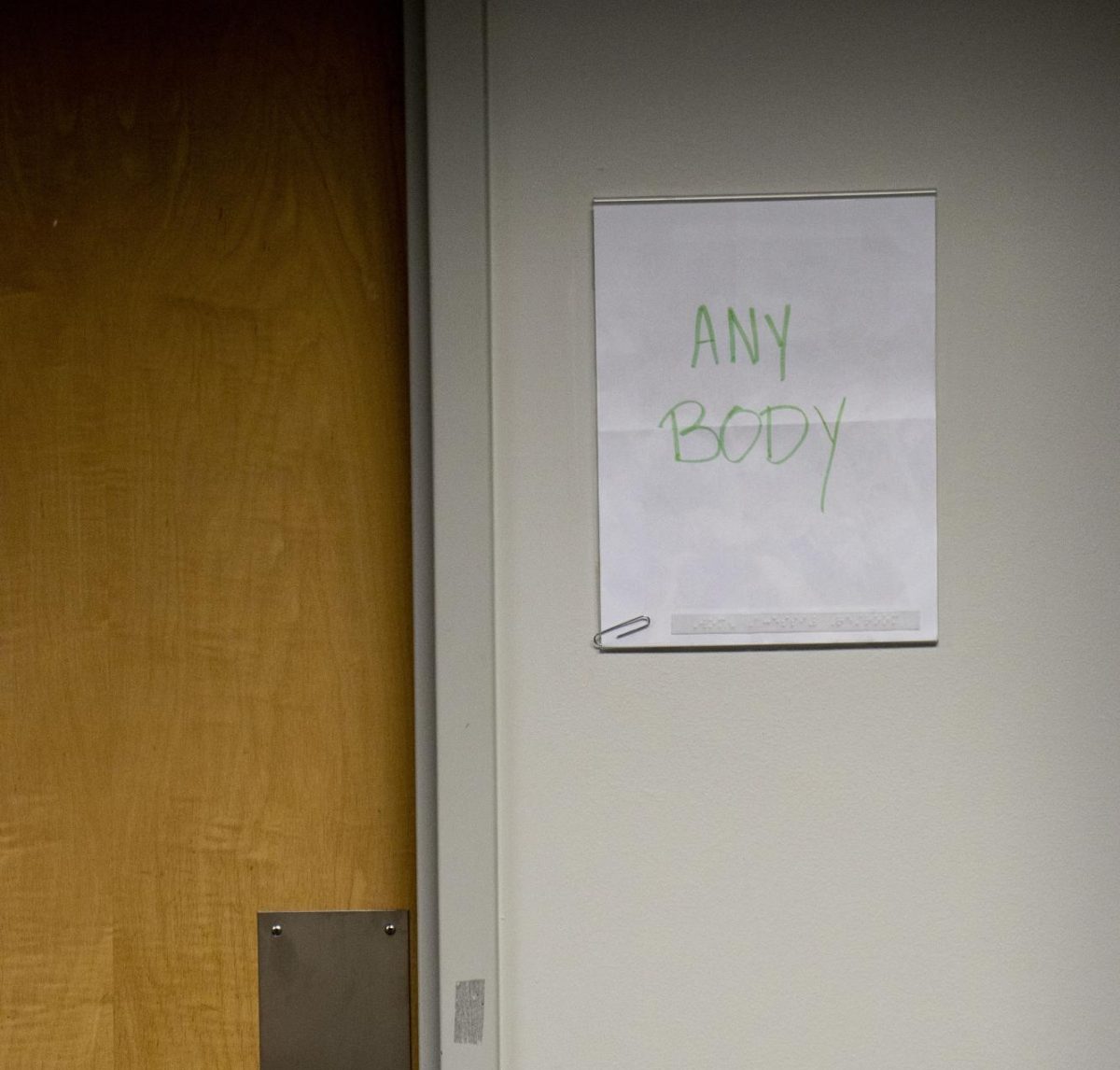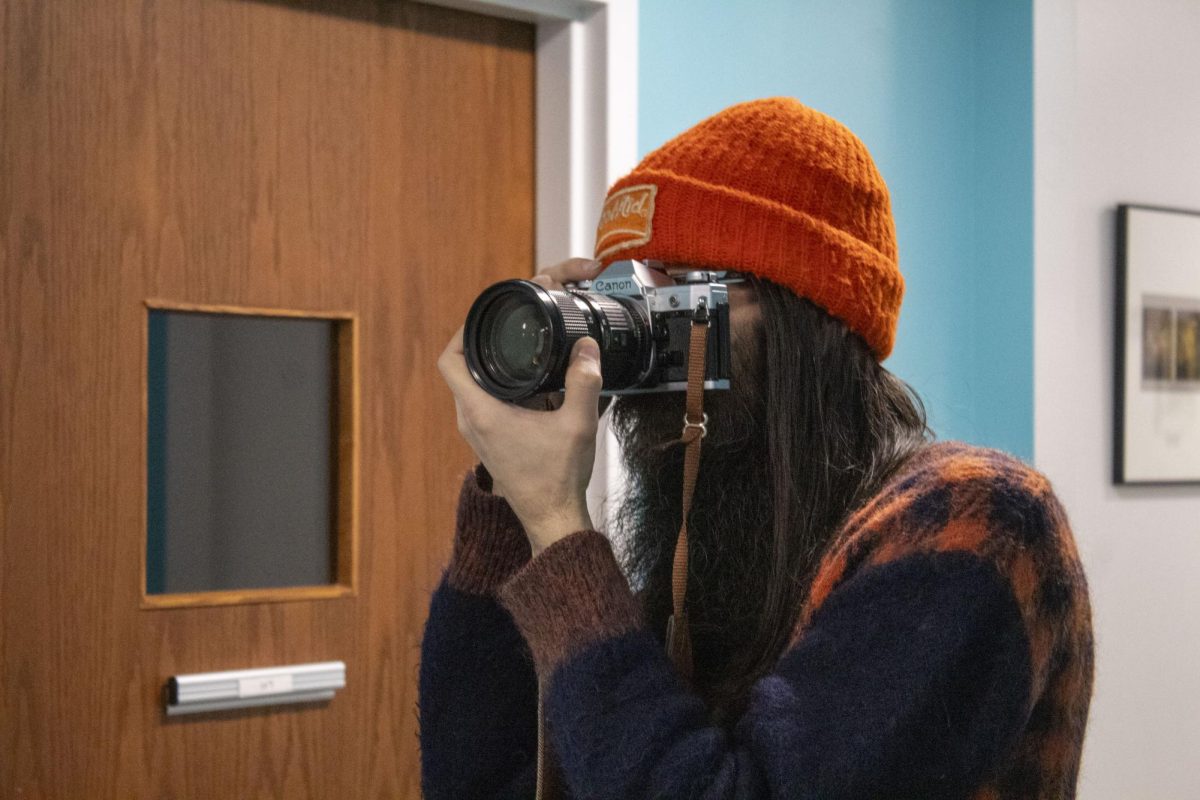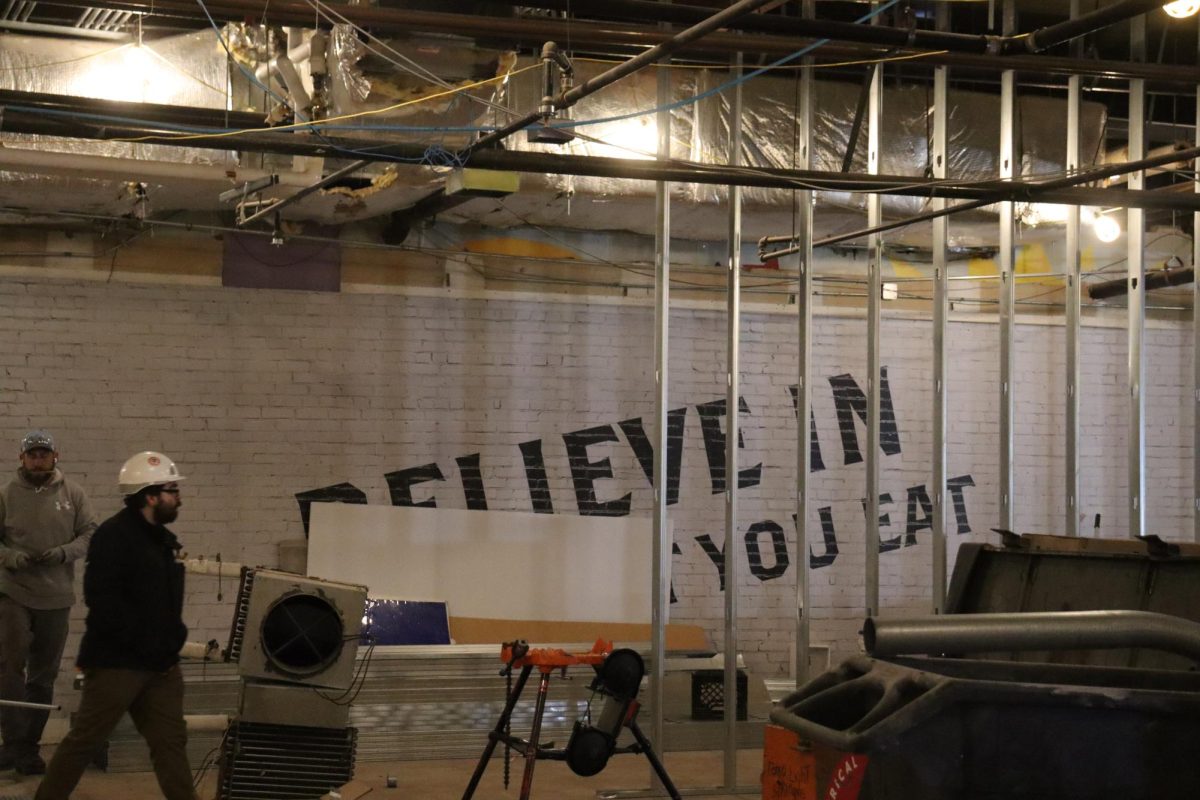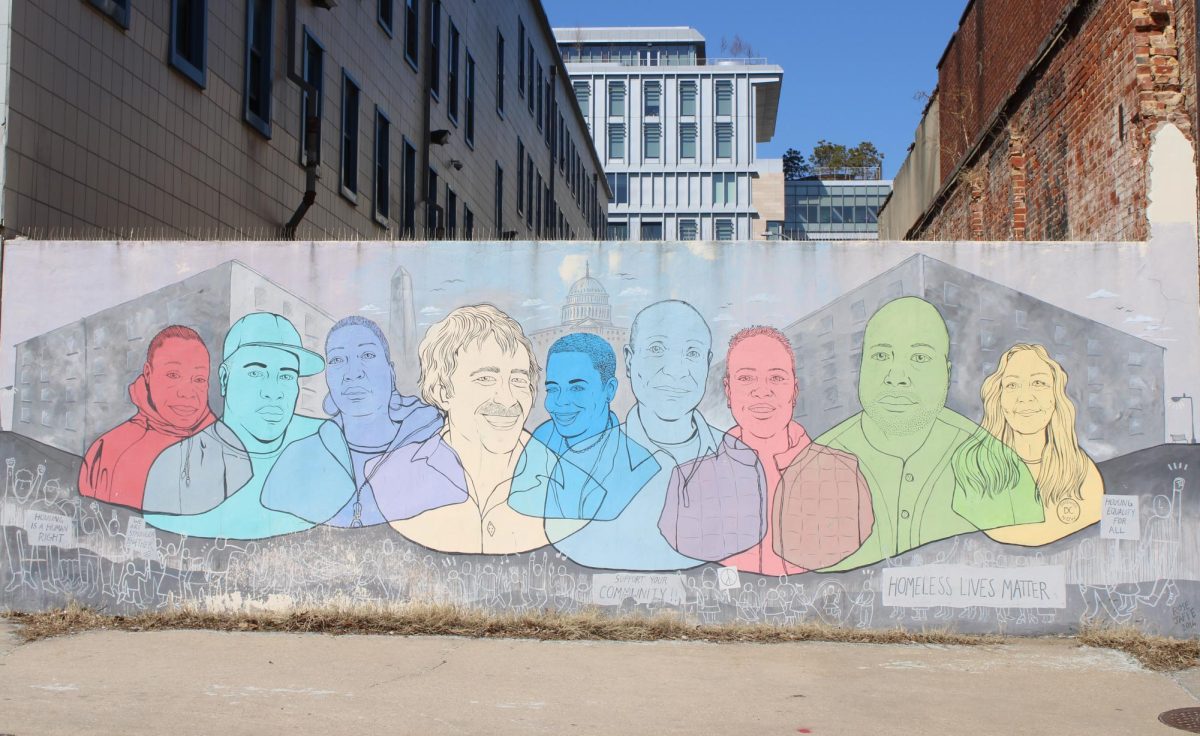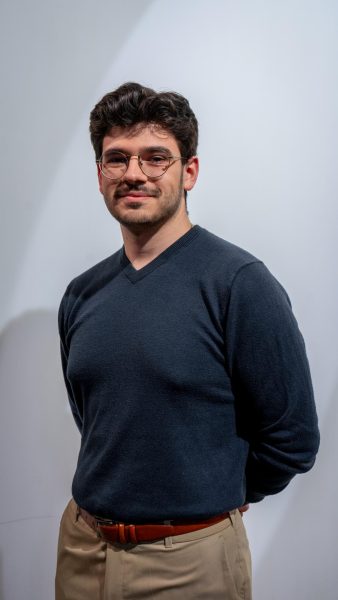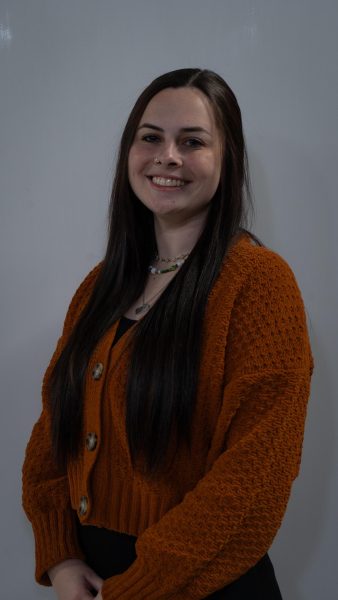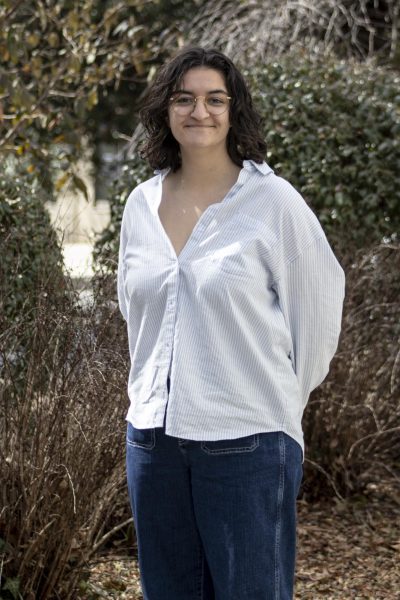Daniella Senior is an entrepreneur, immigrant and Spring 2024 Sine fellow. At 34 years old, Senior is the founder of Colada Shop, owner of Serenata and co-founder of Bresca. Senior is hosting a Sine Institute seminar series entitled “Immigrant Women, Food, and Policy: Unpacking Implications and Impact in Food Systems.”

Daniella Senior was a 13-year-old girl in the Dominican Republic when she started her first business.
She used her cooking skills and experience selling stickers on the playground to start her own catering service.
“I made a brochure in paint and also little stickers,” Senior said. “I ordered these boxes and basically made little samples with the brochure and the sticker attached to the boxes. I did like 120 of them and handed them out to everyone I knew.”
By the end of that year, Senior said she had catered events for large corporations and weddings, and hired six employees to handle the rapidly expanding interest. Senior said she adorned it with the name “Baked Especially for You.”
Senior is the CEO and founder of Colada Shop, a Cuban cafe in the D.C. area that recently opened its sixth location in Clarendon this year, according to the shop’s website. In addition to Colada Shop,
Senior co-founded Bresca and owns the dual restaurants Serenata and Zumo. Senior also serves on the D.C. board of Re:Her, a nonprofit supporting female entrepreneurs in the food and beverage industry.
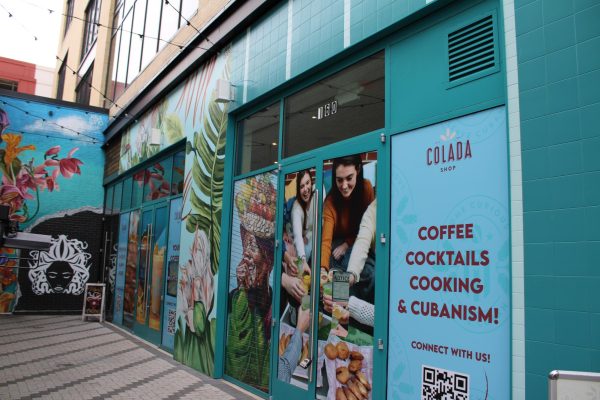
As a Spring 2024 fellow for the Sine Institute of Policy & Politics at American University, Senior is hosting a seminar series on entrepreneurship, policy and immigrant women in food communities.
Senior said she continued her catering business throughout high school and quickly discovered her calling to culinary entrepreneurship. After working in local restaurants, she said she attended the Culinary Institute of America and participated in an externship, which is a professional training experience provided through university and business partnerships.
“It built the right foundation of what, honestly, real life restaurants are like,” Senior said. “Our schedules were 12 hours … but that’s real life restaurants. I also really enjoyed my externship. It really allowed me to take what I was learning and put it in a very practical sense.”
After she completed her education, Senior said she became a culinary consultant and traveled across the U.S. to meet with clients. In every cafe she had a meeting in, Senior said she found herself fatigued by its lack of creativity and soul. She said many cafes are similar and often condescending.
“I don’t want another muffin, I don’t want your attitude when serving me a coffee, like, I need to wake up, I don’t need a lecture right now,” Senior said.
In 2016, Senior founded Colada Shop. Senior said the restaurant is designed as a refuge from people’s fast-paced lives. Colada Shop provides a menu of food, coffee and cocktails for those who dine throughout the day, according to the restaurant’s website.
“To me, coffee was something very sacred culturally,” Senior said. “It was 15 minutes where you kind of slowed down. I was really craving a place where I could work all day. It would transition through the day to the night and had products that would carry through, and allow me to seek the flavors that I missed from home.”
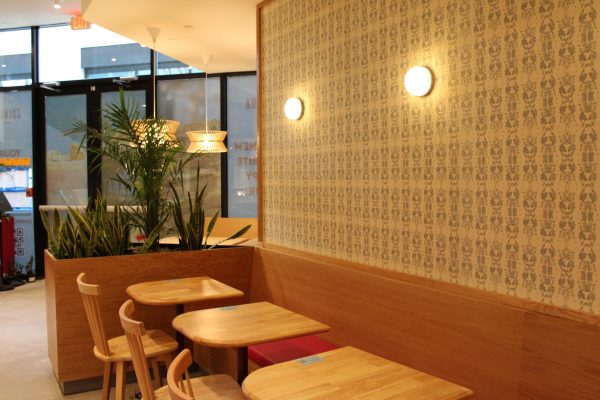
Coffee culture in Latin America and Europe is starkly different from that in the U.S., according to a Hispanic American Historical Review article. Coffee production not only provides locals with a source of export income, but coffee consumption is a communal cultural practice, according to the article. Coffee venues are also places to gather any time of the day to share food or an after-work beverage before dinner.
“So it’s kind of an extension of your home,” Senior said. “That’s what I aim with it, and simultaneously changing the dynamic of how people perceive Latin food, by creating spaces that are really pretty and presented well.”
Unlike many cafes, Colada Shop features Cuban cocktails and a variety of other beverages.
“The cocktail aspect of it was very important to me because I spent a lot of my career focused on beverages,” Senior said.
In 2017, she opened a French bistro named Bresca to capitalize on recent innovations in French cuisine, which was awarded a Michelin Star the year after, according to the Michelin Guide.
In 2019, Senior opened Serenata and Zumo. The restaurant spotlights cocktails sourced and inspired from Latin American countries, according to Serenata’s website.
Senior said that identity barriers are still roadblocks for women and immigrants to start their own businesses.
“Raising money as a woman is incredibly challenging,” Senior said. “And then you add minority woman to that. I think, roughly only two percent of funding goes to women, which is crazy, and then 0.02% goes to women of color.”
Pitchbook industry data shows that women received just 2% of all venture capital awarded in 2023. Latina women often aren’t awarded any and instead must turn to friends and family for starting capital, according to the Immigration Policy Center. That is why Senior has mentored other women who are starting businesses and helped them get on their feet.
“I try to lead by example by hiring a lot of women to start,” Senior said. “And not only hiring a lot of women but making sure they have the tools and training to actually be in leadership. I think women have a different approach to leading–which I particularly enjoy–and tend to be a little bit more empathetic and detail oriented, and the ability to multitask is incredible.”
To counter the exclusion of women from leadership roles in the culinary field, women need to be the ones doing the hiring, Senior said.
“We live in a country that, unfortunately, still does not have accessible childcare, and those things typically then fall on women and interrupt their careers and they’re forced into lower paying jobs,” Senior said.
Helping to make culinary and other fields more accessible to women through policy was a large part of what Senior said drew her to the Sine Institute at AU.
Ben Bryant, director of strategic communications at the Sine Institute, said in an email that the firsthand account Senior provides is critical to her contribution and the Institute’s purpose.
“Her story as an immigrant and entrepreneur and her success with D.C. restaurants is inspiring to AU students and event attendees,” Bryant said.
On February 29, Senior held her first seminar with the Sine Institute, showcasing the obstacles that immigrant women face in the culinary industry, according to the institute’s website. Her event discussed the difficulties of change when the system is stacked against them.
“There’s very little information out there when it comes to immigrant women in this country because they’re hiding, unfortunately,” Senior said. “If I have the ability and the opportunity to highlight some of their struggles and their contributions to the US and its economy, then I’m gonna do it.”
Senior said businesses of all sizes have an obligation to hire and promote the careers of immigrants and immigrant women.
Senior said seeing immigrant women grow and succeed makes her happy.
“It’s really the exchange of flavors and culture and how to do things differently. Even if you’ve done it the same way for 20 years, that doesn’t mean that’s the best way to do it,” Senior said. “From the restaurant world, this is all the flavors and the different combinations of dishes. So, I think they actually bring a lot of excitement into the food system.”
Senior’s final Sine event, “Immigrant Women as Catalysts of Change in Food Communities,” is on April 16 at 3 p.m., according to the Sine Institute’s website.
“Daniella’s seminars bring a perspective from a young and successful entrepreneur alongside special guests who are also young and successful entrepreneurs,” Bryant said. “She shows us the possibilities for immigrants and women of color to overcome challenges and build success while being real and honest about the challenges they are likely to face.”

Senior said the Sine Institute is a platform for change.
“I’m very drawn to making this change in policy happen, and that’s how I approach my seminars,” Senior said. “I think people listening to the seminars really appreciate the kind of raw information from a firsthand account.”


